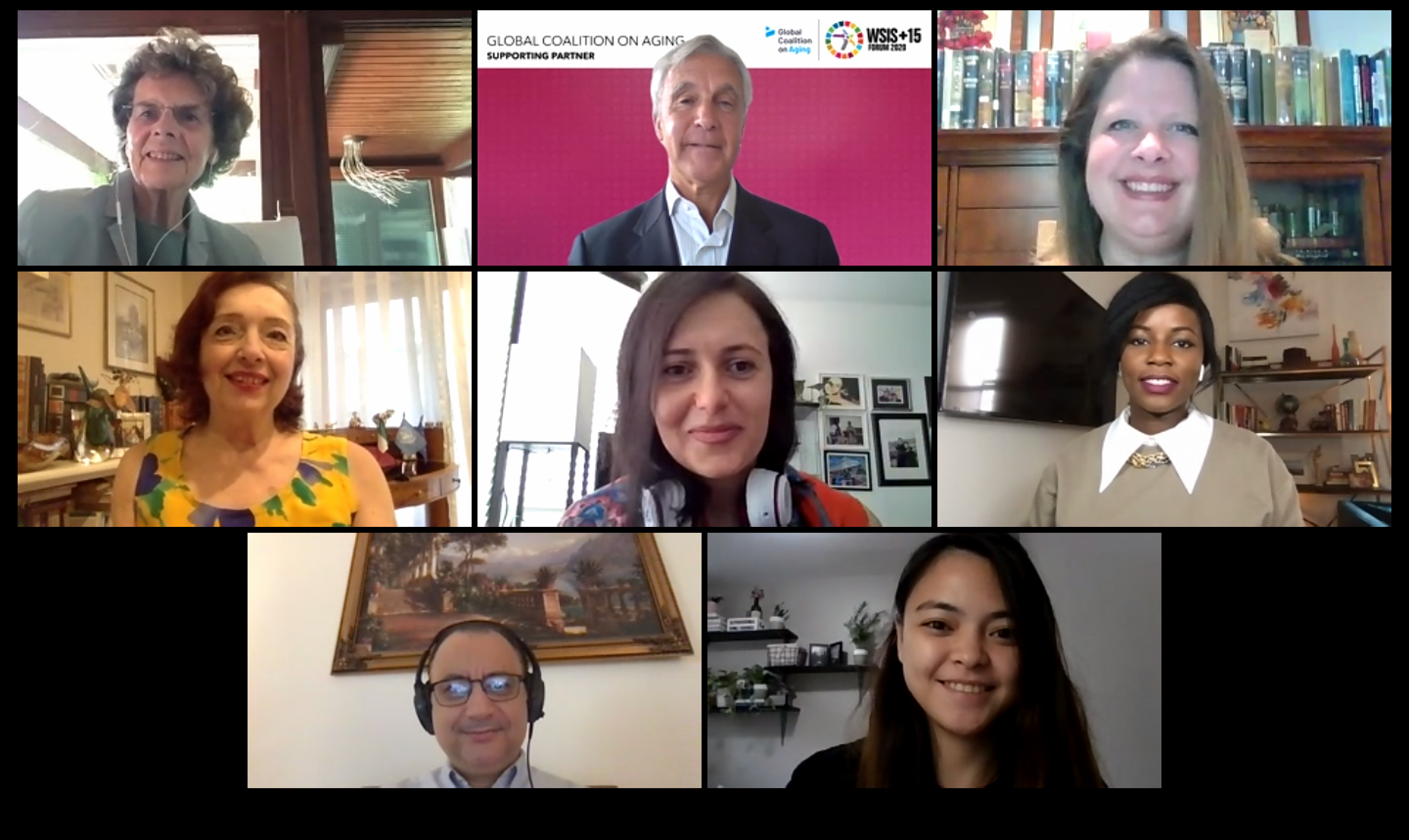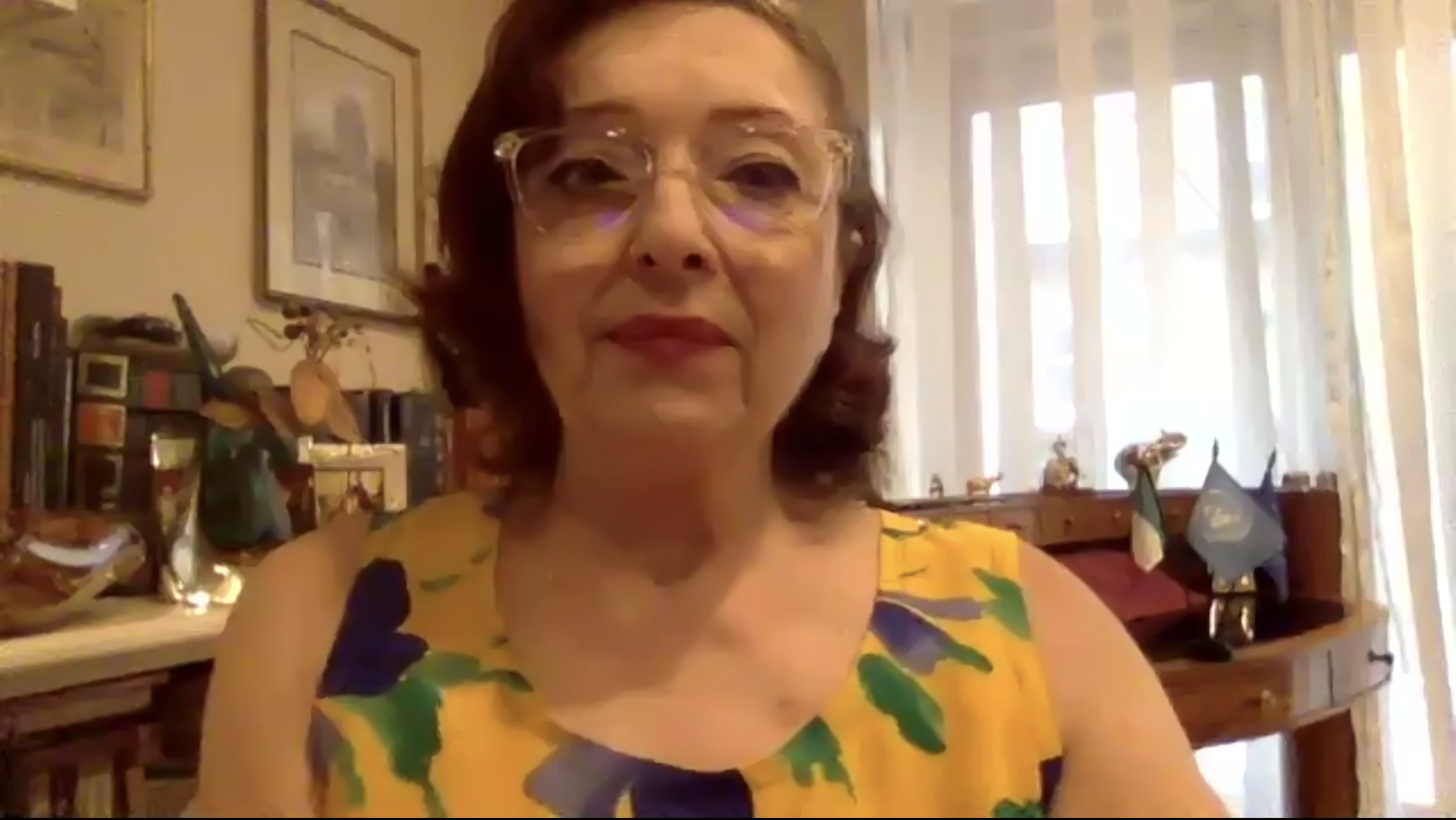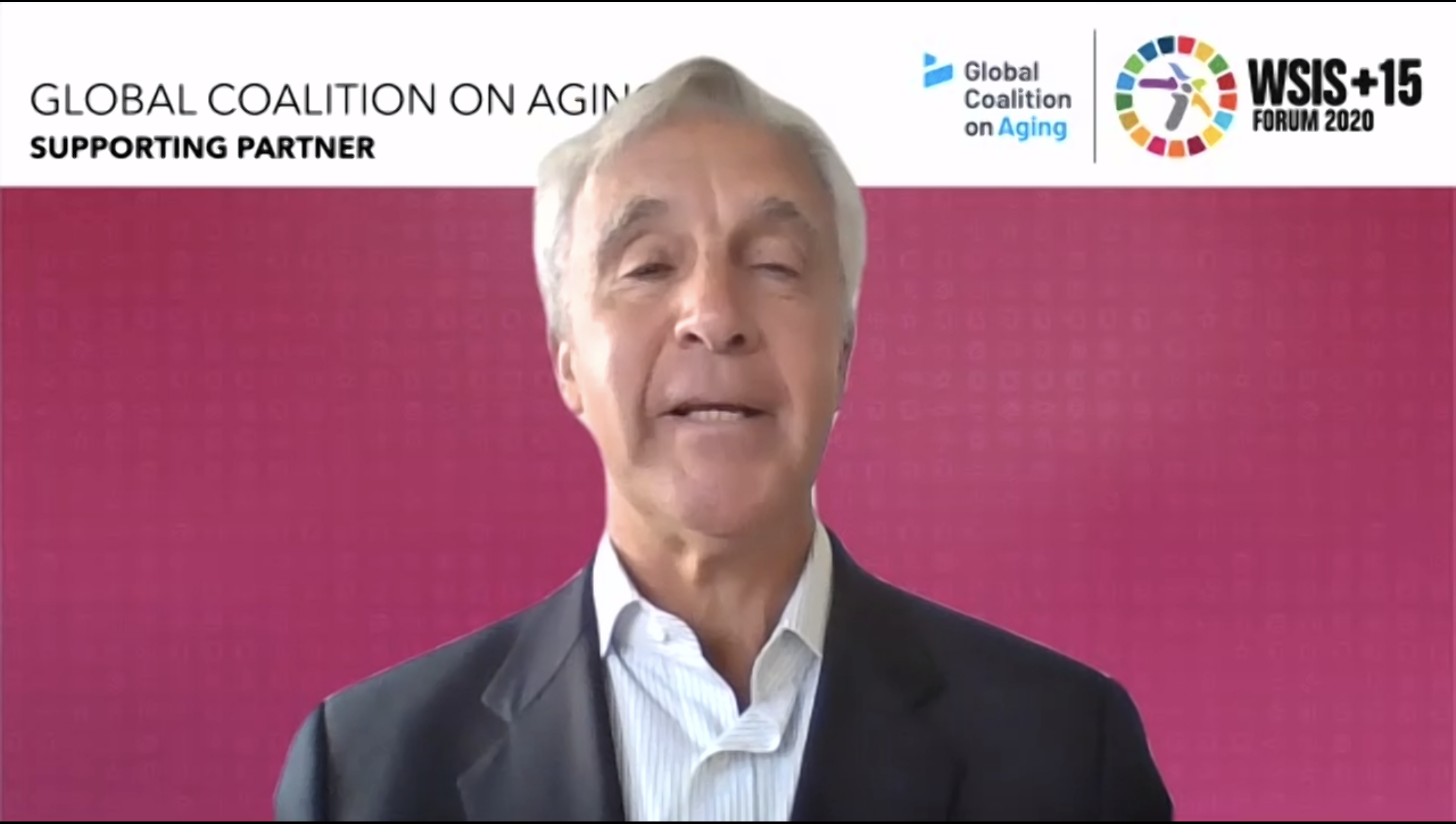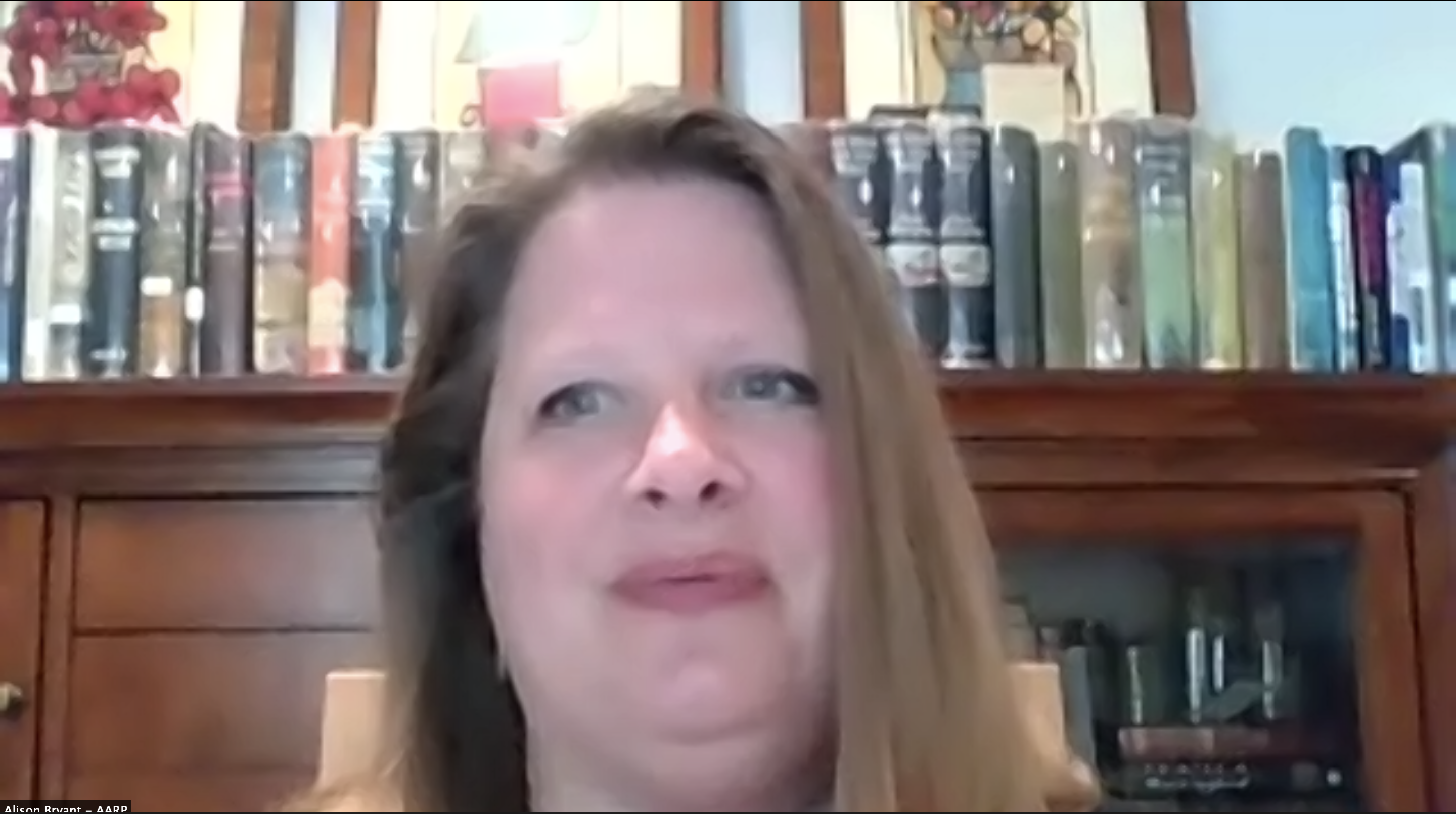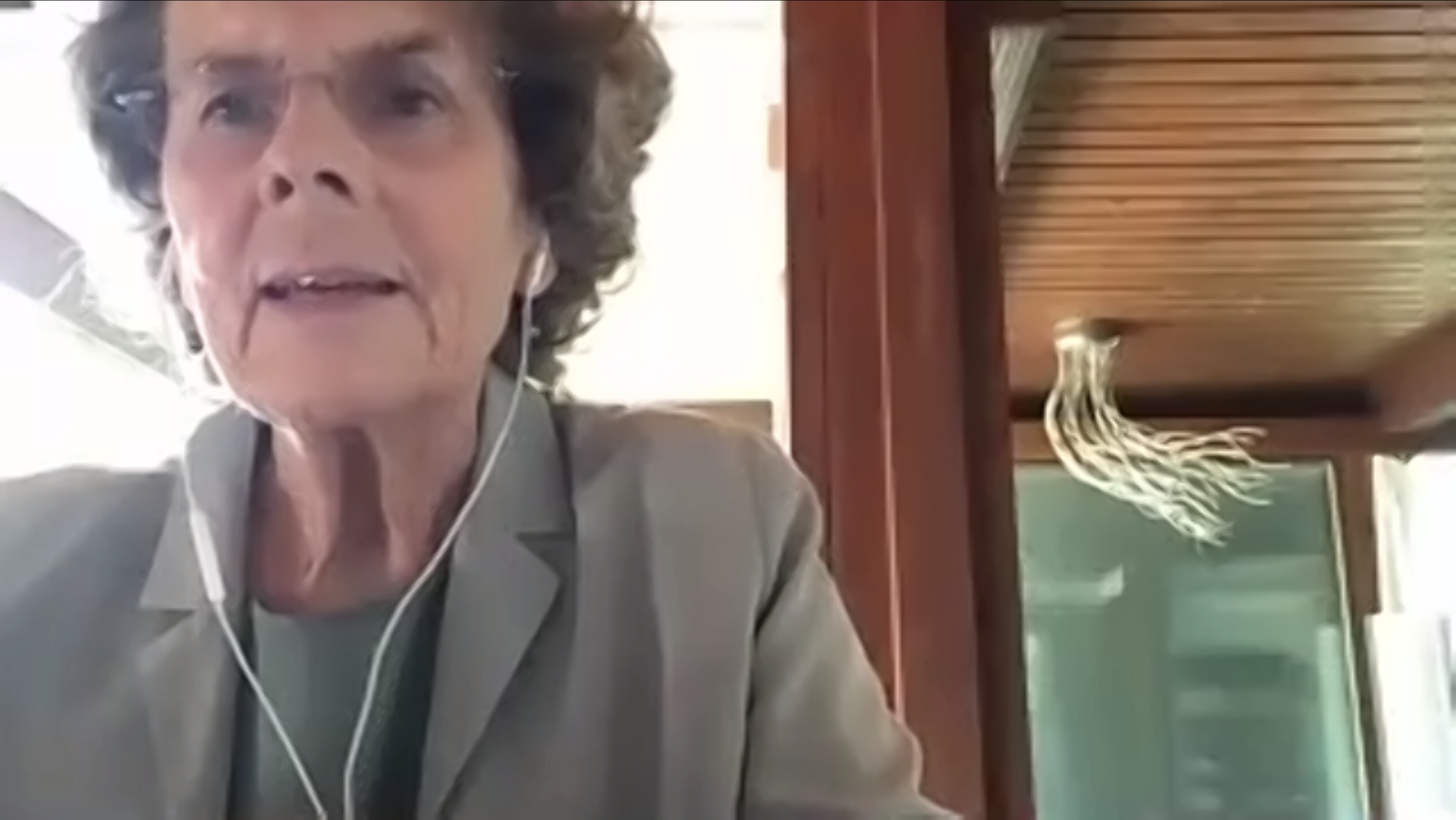Digital Inclusion of Older Persons
United Nations Department of Economic and Social Affairs
Session 285
Harnessing digital technologies to promote the inclusion and well-being of older persons
With its pledge to leave no one behind, the 2030 Agenda for Sustainable Development is centered in the ideals of inclusiveness of all nations, peoples and segments of society in economic, social and environmental progress.
Technological advances are becoming entrenched in many aspects of our societies and hold the potential to create opportunities towards an inclusive and sustainable development and provide tools to surmount the challenges faced by many to fully participate in the development process. However, where access to ICTs is limited and not inclusive, it can intensify existing inequalities and even create new ones.
The COVID-19 pandemic illustrates both points. Digital technologies have supported efforts to fight the virus by enabling access to healthcare (e-health and telemedicine), has allowed students to continue its education (remote learning and schooling) and businesses and workers to make use of teleworking to remain active, contributing to their respective economies. It has provided access to goods and services through e-commerce, including to food delivery services and others. Importantly, it has enabled family and friends to be connected through months of physical distance, thus alleviating social isolation. Yet, it has also shown that these benefits are not equally shared by all countries and segments of society and that, where access to the opportunities provided by digital technologies are relatively or highly limited, many have been left behind.
Older persons are often among those that do not benefit fully from the potential of ICTs. For instance, a study in the United States show that while older persons are increasingly using the internet (67 per cent of persons aged 65 and older) , many remain disconnected, with one third of older adults not using the internet, and around half not having home broadband services. This research also shows that factors such as age, income and education determine differences on technological adoption among this age group.[1] In the OECD, results from a Survey on Adult Skills shows that older workers are less equipped to work effectively in a digital world with respect to younger generation with a third of 55 to 65 year old workers, on average, having no computer experience.[2]
This session seeks to advance the goal to bridge the digital divide and promote inclusiveness of the Connect 2030 Agenda (Goal 2) by exploring the digital divide experienced by older persons and analyzing how this divide impacts their digital inclusion. In this way, it attempts to inform and nourish discussions around the vision for WSIS Beyond 2015, and place older persons at the center of debates on inclusiveness, along with other groups.
The session will seek to explore the data around access and inclusion of older persons to new technology, discuss the digital divide among older persons including by identifying the main vulnerabilities, reasons and the impact that such divide has on older persons’ participation in society, and provide some examples of successful efforts to promote access and inclusion of older persons, in particular through capacity building and life-long learning activities.
[1] https://www.pewresearch.org/internet/2017/05/17/tech-adoption-climbs-among-older-adults/
[2] OECD (2019), Working Better with Age, Ageing and Employment Policies, OECD Publishing, Paris, https://doi.org/10.1787/c4d4f66a-en.
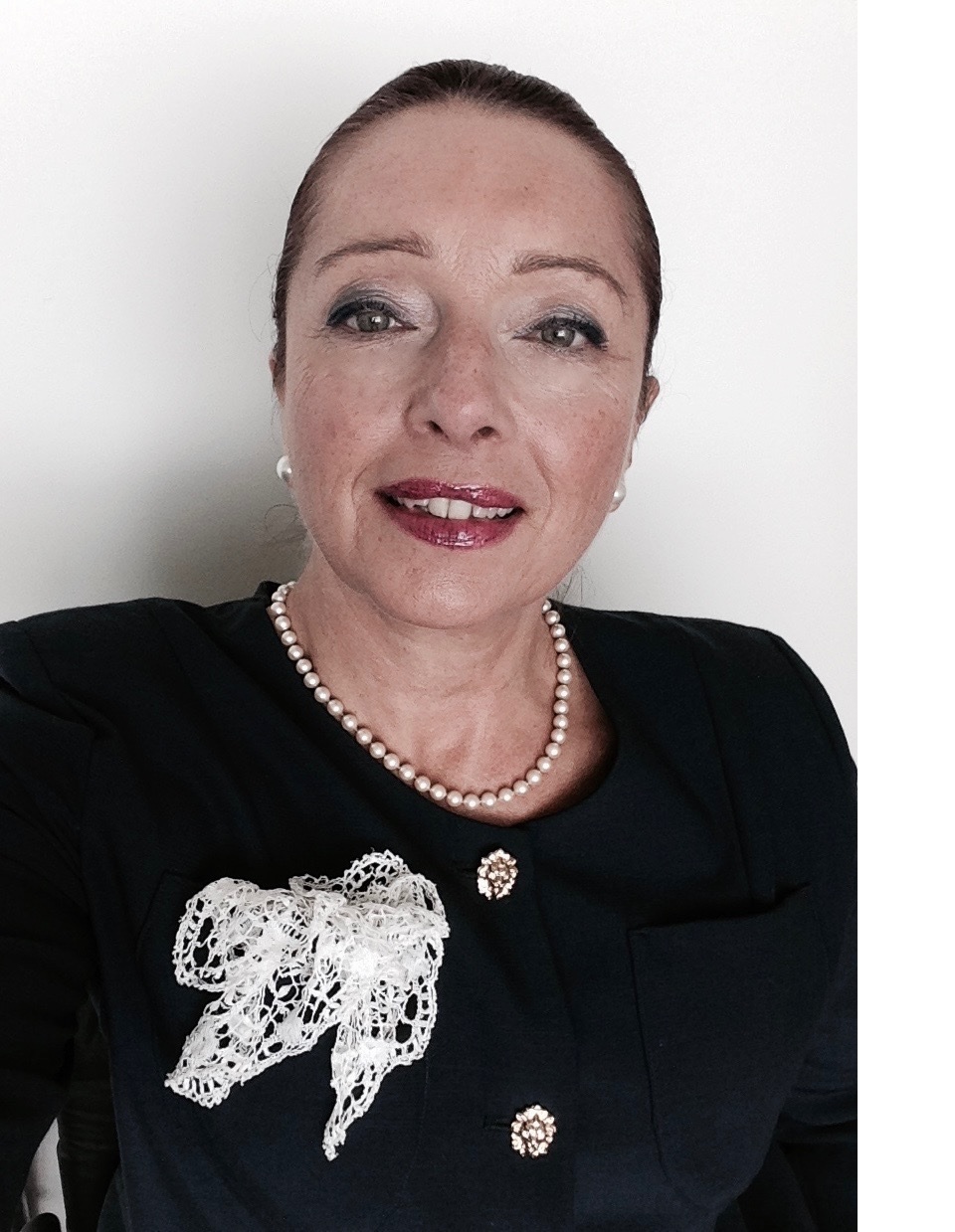
Daniela Bas was appointed Director of DESA’s Division For Inclusive Social Development on 9 May 2011. A politologist specialized in international politics, human rights and social development, Ms. Bas has most recently served as Senior Consultant designated by the Italian Ministry of Foreign Affairs as expert on human rights to Institutes that operate internationally. She has also provided her expertise on anti-discrimination issues at the Presidency of the Council of Ministers.
Ms. Bas has worked for close to 10 years for the UN as a Professional Officer in social development and human rights, traveling around the world on behalf of the UN and also as a speaker at international conventions. She has also held a number of other significant assignments including as Special Adviser on “Fundamental Rights” for the former Vice President of the European Commission; as the Italian representative designated by the Presidency of the Council of Ministers on the topic “Tourism for All” to the European Commission; and as journalist and broadcaster for Italian Radio and TV.
Ms. Bas is a Board Member of the EU Agency for Fundamental Rights and of the Committee to Promote non-Armed and non-Violent Civil Defense of the Presidency of the Council of Ministers. She graduated in Political Science in 1985, with a major in International Politics and wrote a dissertation on ”The elimination of architectural barriers and the employment of people with physical disabilities”.
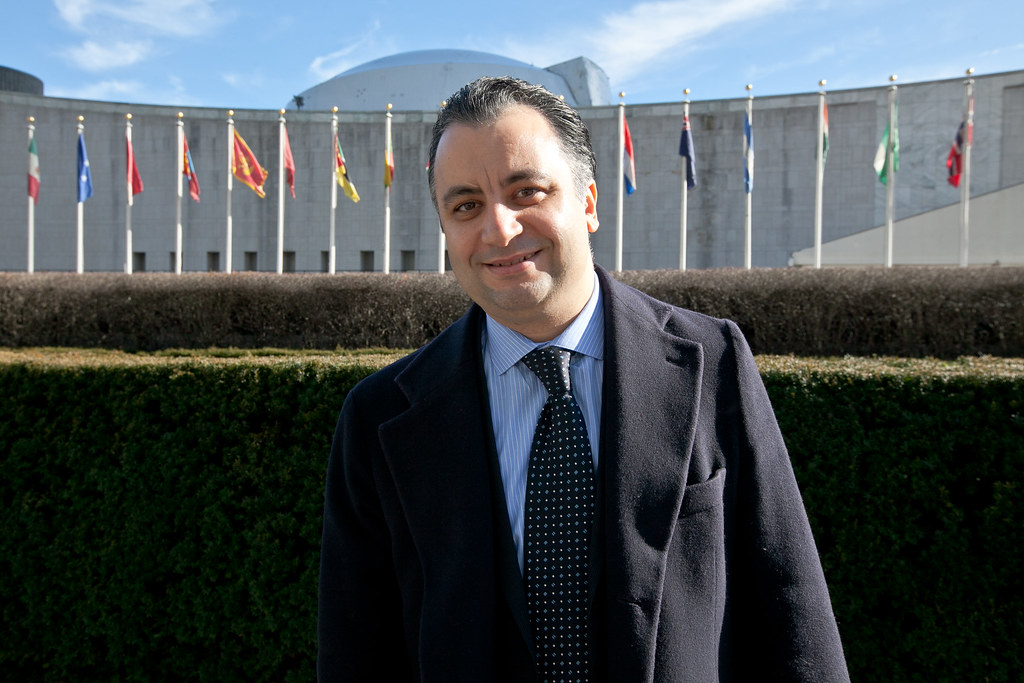
Amine Lamrabat is an Associate Public Information Officer at the United Nations. He coordinates the NGO and outreach activities in the Division for Inclusive Social Development of the United Nations Department of Economic and Social Affairs (DESA). Amine is committed to and passionate about ICTS, particularly as they relate to older persons. He has organized various side events on the topic at the Commission for Social Development and the General Assembly's Open-ended Working Group on Ageing.

Dr. Alison Bryant leads the Research Center and heads up the Technology impact area for AARP. In these roles, she is focused on helping the organization, consumers, and external stakeholders understand, engage with, and innovate for the 50+ consumer and their families. She is a renowned expert on the impact of media, technology, and play on consumers. She earned her Ph.D. from the Annenberg School of Communication at the University of Southern California, and has three edited books and over 30 research articles and chapters.
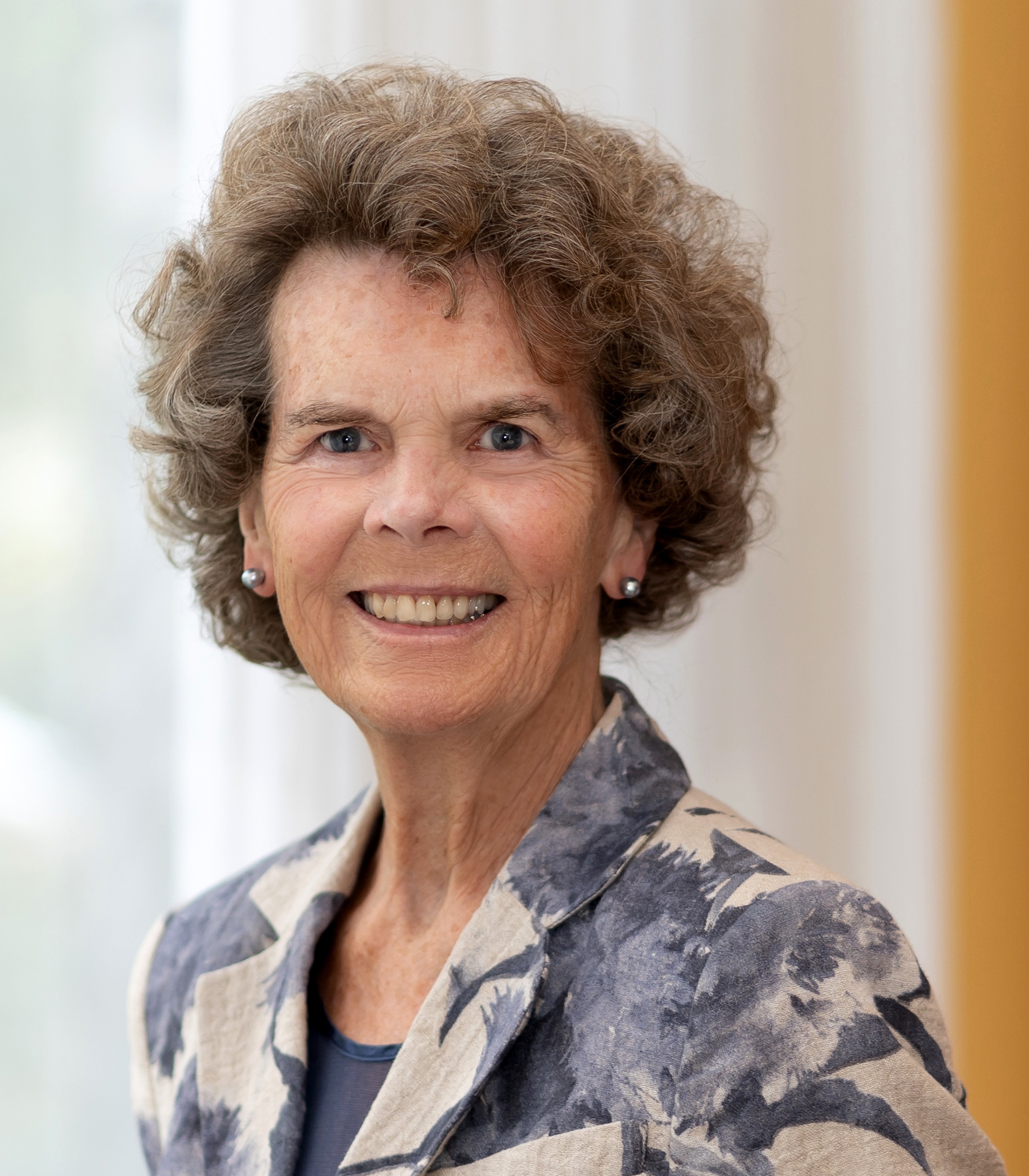
Heidrun Mollenkopf is Board Member of BAGSO, the German National Association of Senior Citizens' Organisations, and Vice President of AGE Platform Europe. Since 2016, she represents BAGSO regularly at the Open-Ended Working Group on Ageing at the UN in New York (OEWG-A. In 2019, she has been appointed to the office of the Working Group on Ageing (WGA) at the United Nations Economic Commission for Europe (UNECE) in Geneva as the representative of civil society.
Before she retired, Heidrun Mollenkopf was Senior Researcher at the German Centre for Research on Ageing at the University of Heidelberg.
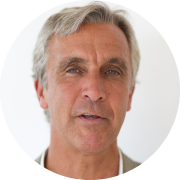
Michael W. Hodin, Ph.D. is CEO of the Global Coalition on Aging, Managing Partner at High Lantern Group, and a Fellow at Oxford University’s Harris Manchester College. He has spoken internationally on the topic of aging, including at G20, APEC, Davos, and the World Knowledge Forum (WKF). He is also a blogger on Medium.
Mike is a Member of the Council on Foreign Relations, and from 2010-2013, was Adjunct Senior Fellow with a focus on population aging. In 2013, Mike was invited by then-Committee Chairman Bill Nelson (D-FL) to lead a Members’ Roundtable with the U.S. Senate Special Committee on Aging. Mike was also the recipient of the 2012 Fred D. Thompson Award from the American Federation for Aging Research. He sits on the Boards of the Foreign Policy Association, Business Council for International Understanding, NYC Blood Center, American Skin Association, American Federation for Aging Research and Emigrant Savings Bank, where he is Chairman of its compensation committee. Mike was a member of the World Economic Forum’s Global Agenda Council on Ageing. And he sits on the Advisory Board for the Milken Institute Center for the Future of Aging.
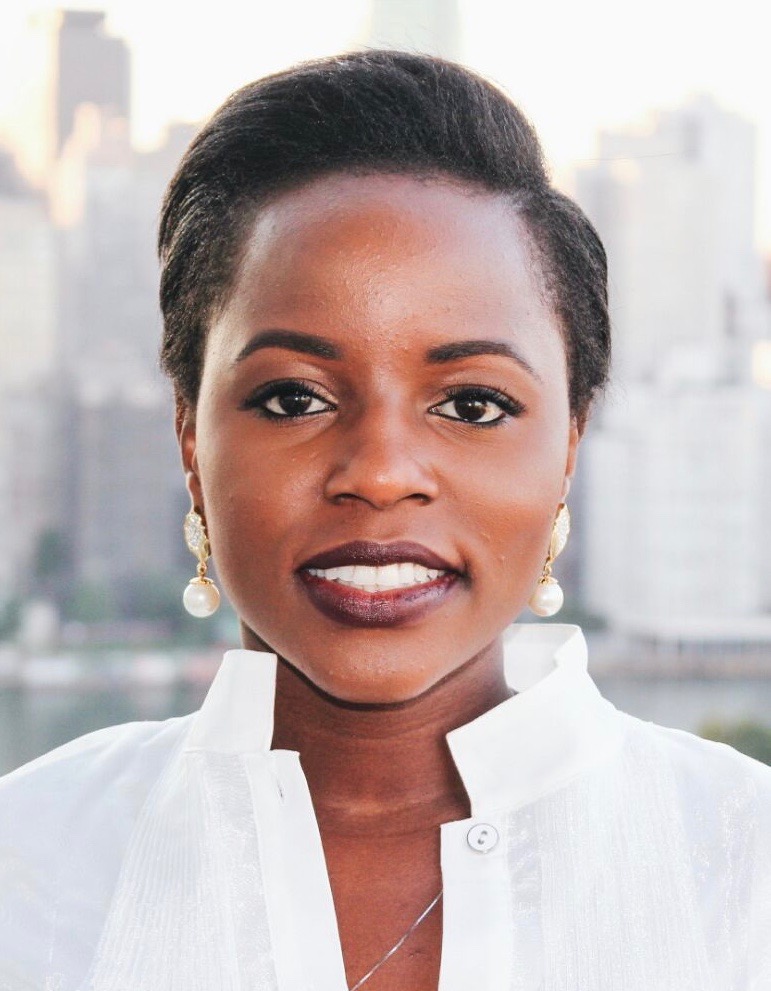
Dr. Osa Omokaro is a User Experience Researcher at Google. Osa leads developer research globally, to inform product strategy and innovation on Firebase - Google's platform for mobile developers. She received a PhD in Computer Science from the University of North Carolina at Charlotte; her innovative Goose Spotter app demonstrated the power of using participatory mobile computing as early warning systems to mitigate oil spills and track their impact. Osa's work is published in top research journals and conferences such as Ubicomp, Ubicomm and PerCom.
-
 C2. Information and communication infrastructure
C2. Information and communication infrastructure
-
 C4. Capacity building
C4. Capacity building
This session seeks to explore the digital divide experienced by older persons. The consequences of such digital divide have important repercussions on the ability of older persons to benefit from the application of ICT’s in all aspects of life (Action line 7), it is a result of how governments and stakeholders are promoting ICTs (Action line 1), promoting access to information and knowledge (action line 3) and influenced by the enabling environment (Action line 6). Furthermore, achieving inclusion of older persons is an ethical imperative that impacts the realization of their human rights (action line 10). In the case of older persons in less developed countries, the programming of cooperation program on ICTs and, whether these are cognizant and integrate the realities of older persons, will determine their inclusion (Action line 11). Indeed, as an integral part of society, it could be argued that exploring the experience of older persons is relevant and linked to all WSIS action lines. Yet, we have decided to focus on:
C2) Information and communication infrastructure: an essential foundation for an inclusive information society
An inclusive information society is not such without the full participation of older persons in all countries, both women and men. Subthemes of this WSIS action line are directly related to some of the challenges faced by older persons that will be addressed in this event including: Access, Accessibility, Affordability, Assistive technologies, Digital inclusion, Remote and marginalized areas, Universal access/service.
C4) Capacity building
Addressing the need for targeted capacity building among older persons to promote their inclusion, as well as the potential of ICTs to expand learning opportunities among older persons will be featured in the event. Relevant subthemes of this WSIS action line include: Basic literacy, Distance learning, Education/training, E-literacy, Gender, Combating illiteracy, Life-long learning, Self-learning
-
 Goal 4: Ensure inclusive and equitable quality education and promote lifelong learning opportunities for all
Goal 4: Ensure inclusive and equitable quality education and promote lifelong learning opportunities for all
-
 Goal 9: Build resilient infrastructure, promote sustainable industrialization and foster innovation
Goal 9: Build resilient infrastructure, promote sustainable industrialization and foster innovation
As was the case for the link to the WSIS action lines, the issue of older persons in the digital society is related to many of the Sustainable Development Goals. For instance, where older persons do not enjoy equitable access to ICTs, their capacity to benefit from e-health (SDG 3) or e-employment (SDG 8) are limited. Yet this session will be particularly linked to:
SDG4 Ensure inclusive and equitable quality education and promote lifelong learning opportunities for all
4.4.1 Proportion of youth and adults with information and communications technology (ICT) skills, by type of skill
Access to life-long learning and capacity building on ICTs is key to achieve full inclusion of older persons in the new digital society. Conversely, ICTs skills have a key role to play in promoting life-long learning for older persons.
SDG 9 Build resilient infrastructure, promote sustainable industrialization and foster innovation
Target 9.c. Significantly increase access to information and communications technology and strive to provide universal and affordable access to the Internet in least developed countries by 2020
9.c.1 Proportion of population covered by a mobile network, by technology
The session will explore inequitable access to information and communication technology and the need to provide affordable access to such technologies to all the population and, in particular, older persons.
